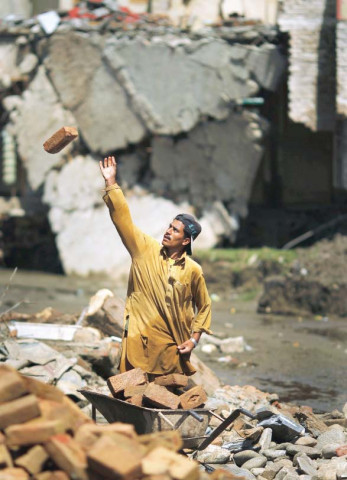Impose VAT for IMF loan

The US Coordinator for Civilian Assistance to Pakistan Ambassador, Robin L Raphel, said on Friday VAT was the first step towards increasing revenues for development. She was speaking to a select group of journalists at the US embassy. “It (VAT) is highly important for Pakistan, first for getting the next IMF loan tranche and second for widening the tax base,” she added. To a question whether the US would mediate to resolve differences between the IMF and Pakistan on the VAT issue, she replied, “they will figure out their problems.”
It is for the first time that the US has publicly supported the imposition of the new consumption tax. Pakistan has agreed with the IMF that it will slap an integrated VAT from July 1. However, Sindh, the largest producer of services, has refused to surrender the right of tax collection on services. Without the province’s consent, the federal government cannot implement an integrated VAT. Talks for the sixth tranche of over $2 billion will begin in July. Due to Sindh’s stiff stance, talks between the IMF and Pakistan on the next budget have failed to yield results and President Asif Ali Zardari has asked Prime Minister Yousuf Raza Gilani to call provincial chief ministers in order to resolve the dispute at the earliest.
Robin Raphel said for the financial year 2010 (the US fiscal year starts from September), the US government would provide $195 million for budgetary support. She said the Kerry-Lugar Act was based on a “Pakistan First Approach” and a significant portion of the $7.5 billion aid in five years would be spent on infrastructure projects. “Poor infrastructure is a big constraint to growth,” Raphel said, adding the US government would align its priorities with the priorities of Pakistan and take measures through the government institutions to the extent possible. She said the Congress still has not appropriated the Kerry- Lugar Act money as it wanted a transparent plan showing where these funds would go. “A two-tier mechanism will be in place to monitor aid utilisation,” said Raphel.
She said accountability and monitoring were always an issue whenever there was a large amount involved. “The US concern is that there is a certain amount of corruption, if you don’t look at money it can slip away,” she said. However, she did not disclose a certain percentage being spent on monitoring of the projects. “What I can tell you is that $300 million per annum is not the accurate figure, as the number came from those people who were against the civilian aid.” She said the money would be spent more in vulnerable areas of the country like Fata, Khyber- Pakhtunkhwa, southern Punjab and northern Sindh.
Published in the Express Tribune, May 22nd, 2010.



















COMMENTS
Comments are moderated and generally will be posted if they are on-topic and not abusive.
For more information, please see our Comments FAQ